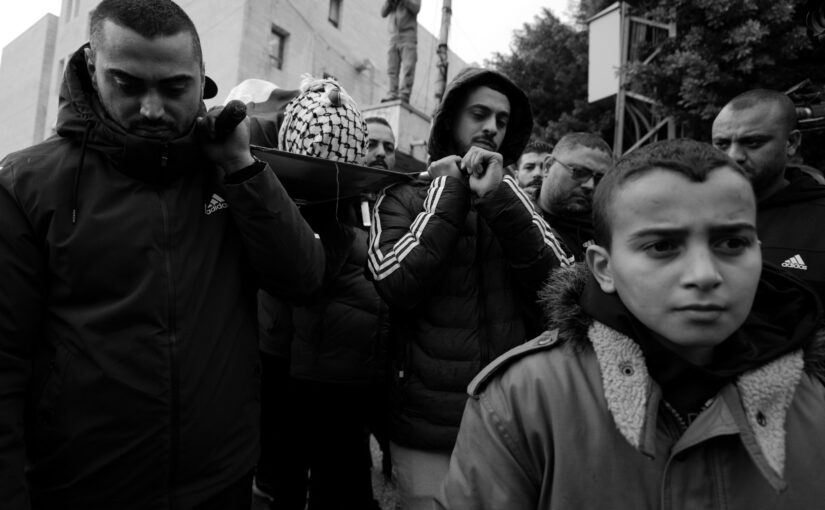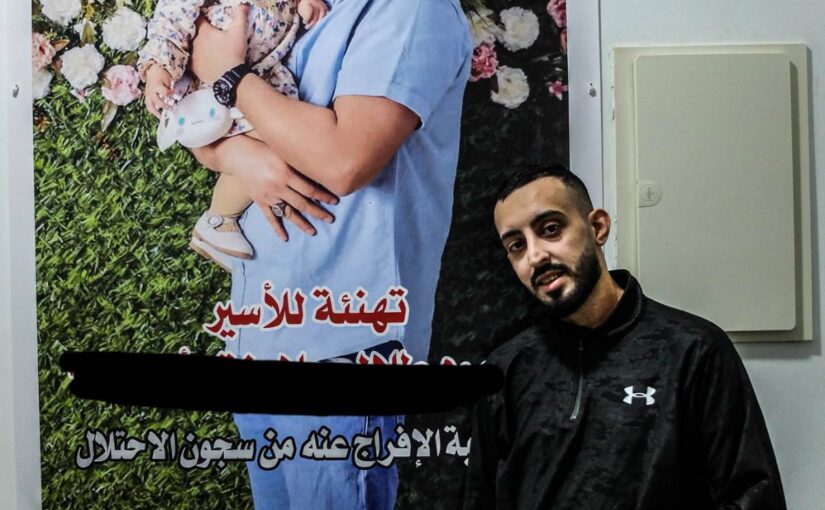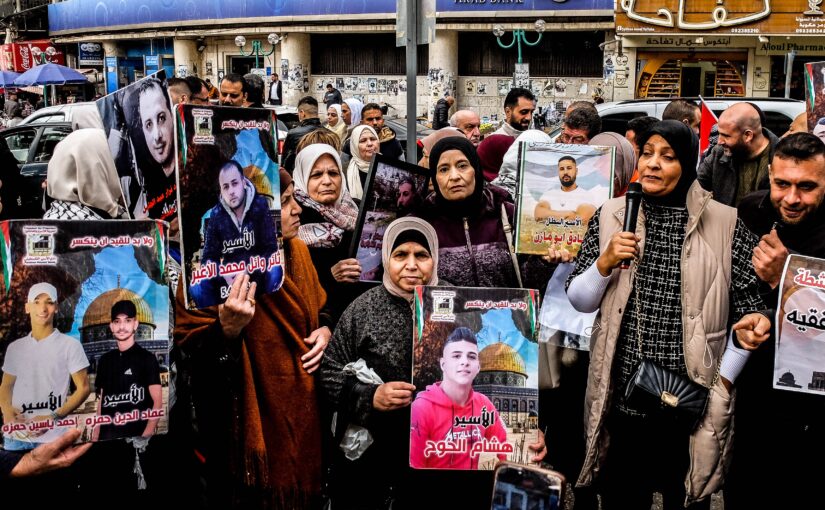Category: Reports
-
The Crime Scene Repeats
By Diana Khwaelid | December 19, 2024 Six Palestinians were killed in Israeli operations in Tulkarem and Balata camps in less than three hours on the morning of Thursday 19 December. Four Palestinian youths were killed by Israeli forces in Tulkarem camp, in the latest of a string of outrages there. At noon on Thursday…
-
Torture as a daily routine: a witness from Israeli prisons
His face is hollowed out, white skin pulled over prominent cheekbones. The eyes, tired but wide open, never stop. Abed just got out of Al-Naqab prison in southern Israel five days ago. He still can’t believe it. “I lost 60 kilos in less than a year.” He shows a giant picture of himself hanging in…
-
The voice of family members of detainees in Israeli jails
On Monday 25 November, about eighty women, mothers, sisters and wives, gathered in Nablus, in the West Bank, to demonstrate in solidarity with the nearly 100 women detained in Israeli jails, along with around 12,000 men, to demand their release and an end to the ongoing genocide in Gaza. Their family members have been in…



